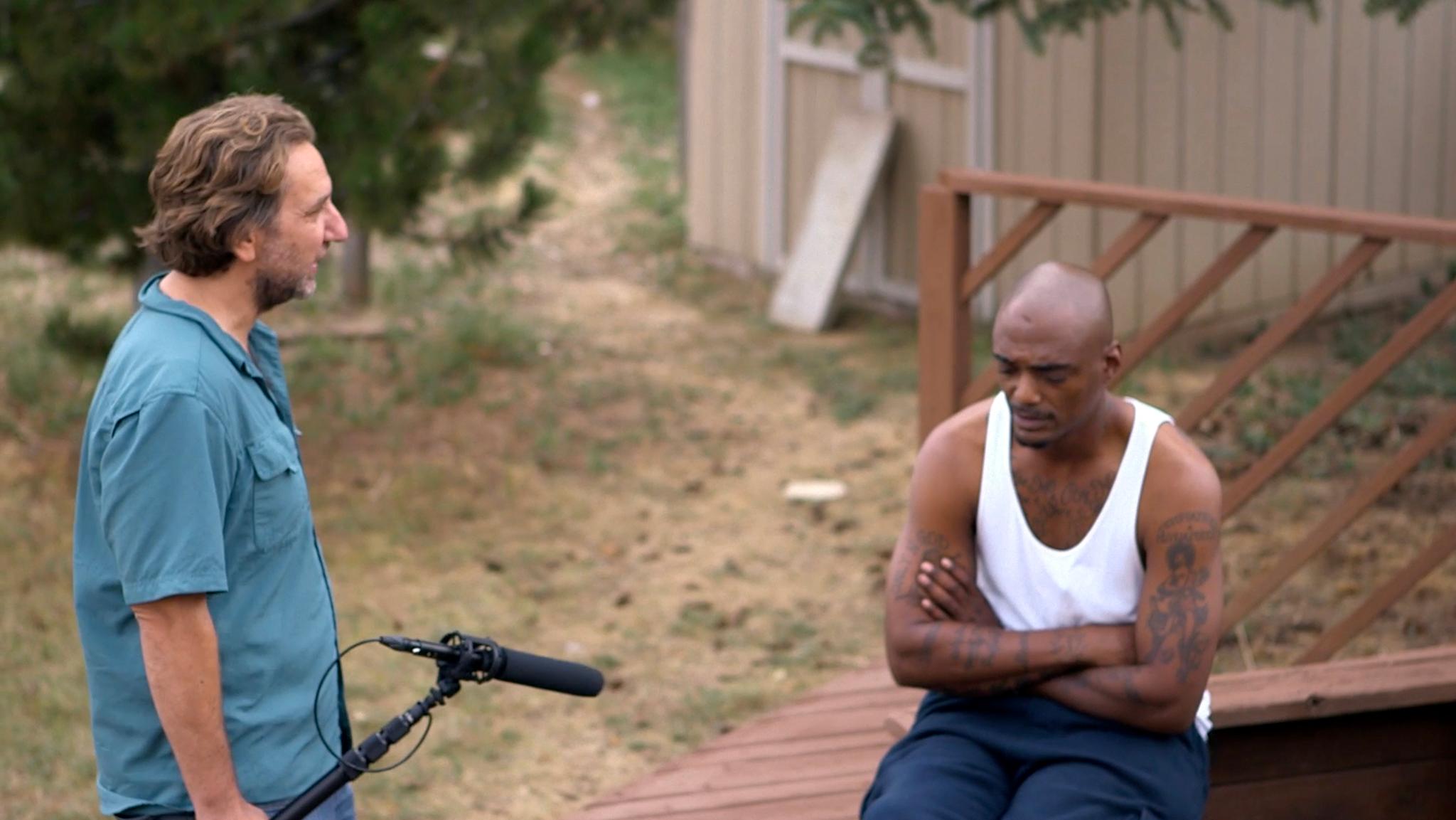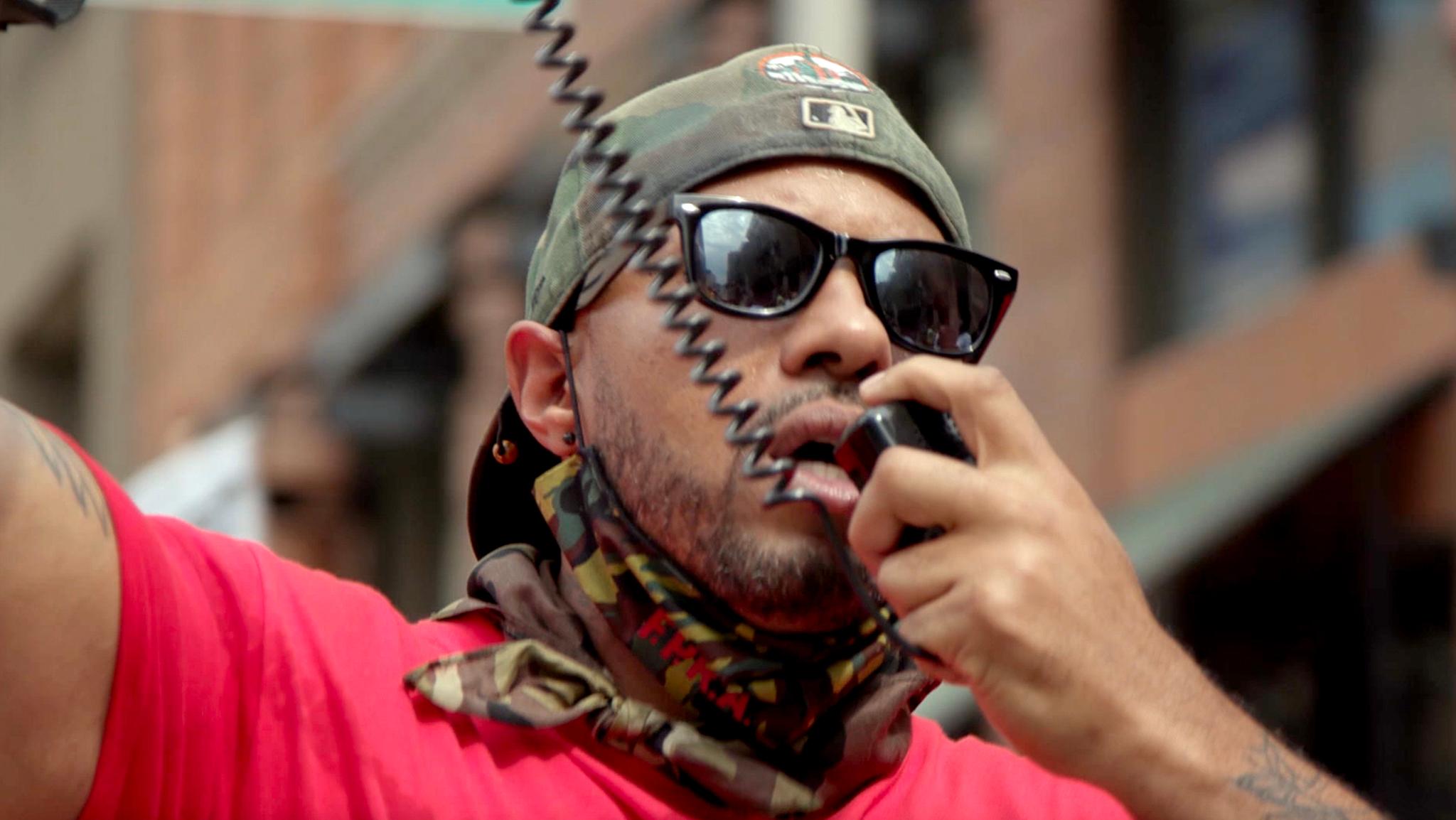Denver journalist and author Julian Rubinstein began filming a documentary version of "The Holly" when he began his reporting on his book of the same name. The book, which came out last year, chronicles the past and present of a block in Northeast Park Hill that's been the center of gang wars, a broader fight to quell violence, dubious police tactics and gentrification. He's almost finished with his movie, and he's now adding some massive names to his credits.
Last week, director and producer Adam McKay signed on as an executive producer on the film. You may know him from titles such as "Anchorman" and "Talladega Nights." In recent years, he's turned his creative eye to stories rooted more deeply in reality, like "The Big Short," which dramatizes the start of the 2008 financial crash, and "Vice," which dives into Dick Cheney's role in George W. Bush's administration. His IMDB producer credits are peppered with other doc projects, like one on QAnon and another on the opioid epidemic. Todd Schulman, who worked with McKay on "Q: Into the Storm" and "The Oxy Kingpins," is also on board with "The Holly" as an executive producer.
Rubinstein said he met McKay through David Sirota, a progressive columnist and political operative who worked on Bernie Sanders' 2020 presidential campaign and wrote "Don't Look Up," a comedic parable about climate change that McKay directed. Rubinstein, who raised half a million dollars to get the project off the ground, told us he was floored when he heard McKay had seen an early cut of his film and wanted to get involved.
"I'm super psyched that someone like Adam would see the complicated structural problems that come to light in this film," he said.
This is Rubinstein's first feature length film. He expects McKay and company will be integral in helping it land proper distribution since many completed documentary projects never see the light of day because competition to get on a Netflix or HBO is so stiff.

"The Holly" movie runs through the third act of Rubinstein's book in real time.
Working in the confines of 100 minutes, Rubinstein said he focused the film on the time he spent on the ground reporting for the book, which goes back to The Holly's earlier history as a focal point in Denver's civil rights movement.
He began his work in 2014, as former-gang-member-turned-anti-gang activist Terrance Roberts prepared to go to trial for shooting a man during an anti-violence rally in the Holly Shopping Center at 33rd Avenue and Holly Street. Roberts and his father, George, are two of the main characters in a movie that Rubinstein describes as a sober look at a complicated situation.
"There's not one clear hero or villain," he told us. "This is a picture of a real messy situation with problems that need addressing."
Chief among those problems are the way Denver police handled informants. His book paints a picture of a police department that used active gang members to gather information while those informants were still deeply involved in violent crime, some of which targeted Roberts.
Rubinstein said he plans to pursue an accountability campaign that uses the film to push for local, state and federal reform on policy regarding police informants, which currently is more of a set of guidelines than rules on how police and informants should act within their agreements.
While "true crime" documentaries usually rely on static interview shots of people retelling past events, Rubinstein said a majority his film is "cinema verité," meaning cameras catch real events as they unfold. Rubinstein told us the deep access granted by Roberts and others in "The Holly's" story allows the movie to show, not just tell, how messy things could get.
"The movie hits really hard. It's one thing to read these things and it's another to see them happen in real time," he said. "There was so much revealed in the book that can, at times, be lost in the mix of almost an epic multi-generational story."
He said the film compliments the book, and should add depth to a story that people may already have read.
Rubinstein worked with cinematographer Tony Hardmon, who recently worked on projects about Malcom X and John Lewis, local cinematographers Zachary Armstrong and Aaron Kopp and local producers Donnie L. Betts and Dia Sokol Savage.
The movie is dedicated to George Roberts and will premiere at Telluride's Mountainfilm festival in May. Meanwhile, the book is a finalist for the 2022 Colorado Book Awards.












